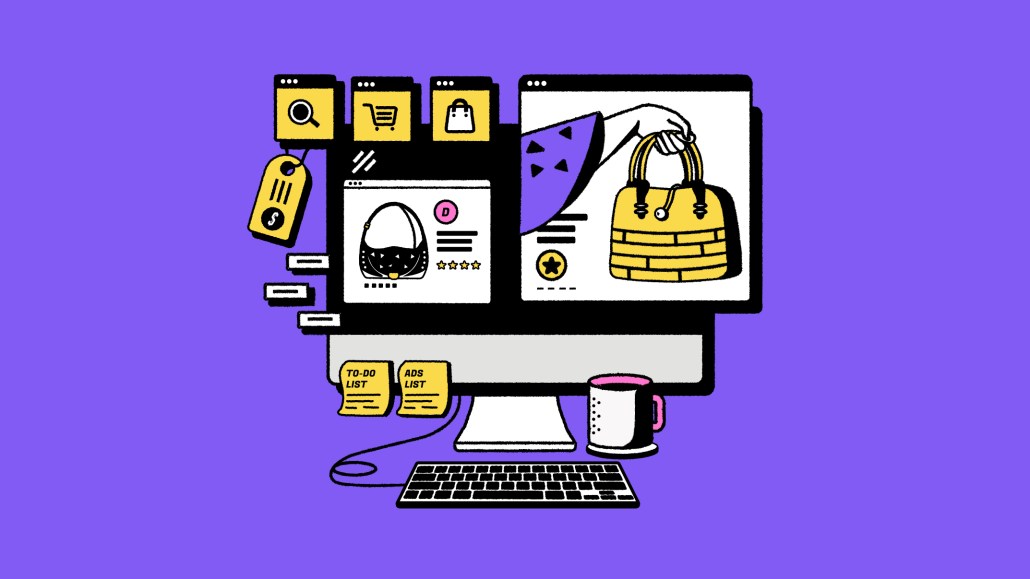Secure your place at the Digiday Media Buying Summit in Nashville, March 2-4
‘Still understanding that behavior’: What BuzzFeed learned from a year of livestream shopping

Throughout 2021, live-streamed shopping was one of digital media’s most closely watched industry trends. Interest in the emergent consumer behavior fueled venture capital investments, spending by legacy broadcasters, and some unusually ineffectual business development from Amazon.
It also left publishers, platforms and influencers with questions they’re still trying to answer. Last year, BuzzFeed streamed more than 60 different live shopping events, 30 of which went live in the fourth quarter of 2021. The streams attracted over 4.4 million visitors, who watched more than 1.1 million minutes of content; BuzzFeed, which said it has been evaluating the live streams based on engagement, rather than sales metrics, would not share information about how many products its streams sold.
Digiday spoke with Nilla Ali, evp of commerce at BuzzFeed, Inc., about everything it learned from last year’s forays into the format, as it prepares for another year of testing and learning.
Stores of different shapes and sizes
While emerging digital products often start on one platform before they’re copied by competitors, a number of different platforms, startups and retailers launched shoppable live stream products in 2021, creating extra variables for publishers to sift through. In 2021, BuzzFeed produced shoppable live streams with retailers including Walmart, Target and Amazon, across platforms including TikTok, Instagram and Facebook, as well as its own websites.
“What we do on TikTok, in theory, is different from what we do on Instagram versus our O&Os,” Ali said.
Still solving for why
As 2021 wore on, live-stream shopping grew into an obsession for certain media watchers. Live-stream shopping is entrenched as a consumer behavior in China, and so many presume that it is only a matter of time before the practice flourishes in the United States.
But several dozen streams in, Ali and her colleagues are still trying to figure out what might regularly compel someone to tune in to live shopping programming.
“I think you have to take another step back and think about what the psychological reason is for someone,” Ali said. “We’re still understanding that behavior, and that behavior is going to vary, depending on platform, price-point, talent.
“So many in our industry want answers immediately,” Ali added. “We want to do it thoughtfully.”
Host wanted — must be light on one’s feet
As with any emerging consumer behavior, the list of qualifications for a good live-stream host remains largely unwritten. But last year, BuzzFeed’s team figured out that spontaneity and an ability to roll with punches is essential. “It’s not, ‘Are they good on camera?” Ali said. “It’s, ‘Are they good at pivoting?’”
On some of the platforms, hosts have to deal with lots of interactivity, including comments from viewers, purchases made. Having somebody who can engage with those changes is important, Ali said.
Subject matter expertise helped. Before 2021, BuzzFeed had run a live stream show focused on pet products, and instead of more manicured TV hosts, it chose a pair of dog walkers. “It behooved us not to find people who had huge followings.”
Buckle up
For all the questions that remain unsolved, Ali said the platforms will put significant effort into solving them in 2022. “Expect more to come in this vein,” “All these platforms are investing in more commerce tools.”
Shirley Johnson, a senior director and the commerce capability lead at Publicis Commerce, called live-streamed, shoppable commerce “the commerce trend to watch for in 2022.”
More in Media

From feeds to streets: How mega influencer Haley Baylee is diversifying beyond platform algorithms
Kalil is partnering with LinkNYC to take her social media content into the real world and the streets of NYC.

‘A brand trip’: How the creator economy showed up at this year’s Super Bowl
Super Bowl 2026 had more on-the-ground brand activations and creator participation than ever, showcasing how it’s become a massive IRL moment for the creator economy.

Media Briefing: Turning scraped content into paid assets — Amazon and Microsoft build AI marketplaces
Amazon plans an AI content marketplace to join Microsoft’s efforts and pay publishers — but it relies on AI com stop scraping for free.








